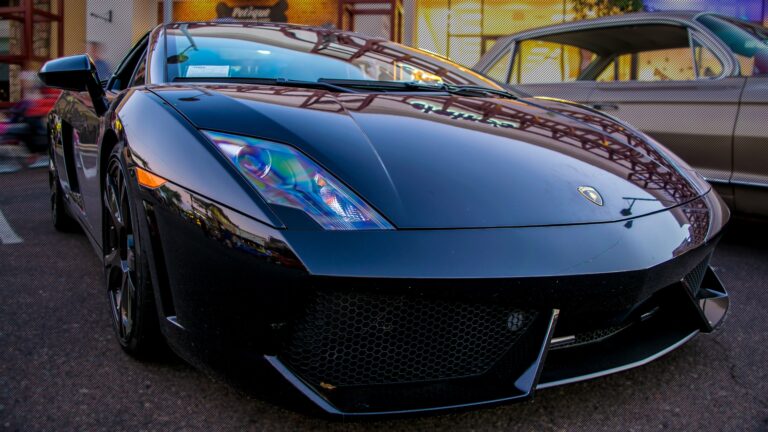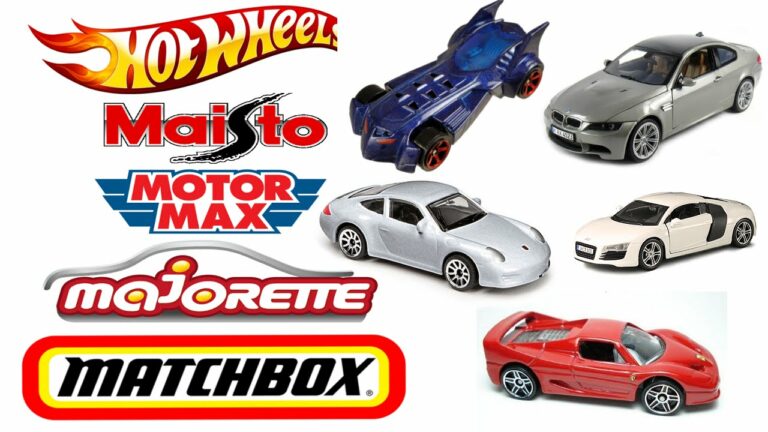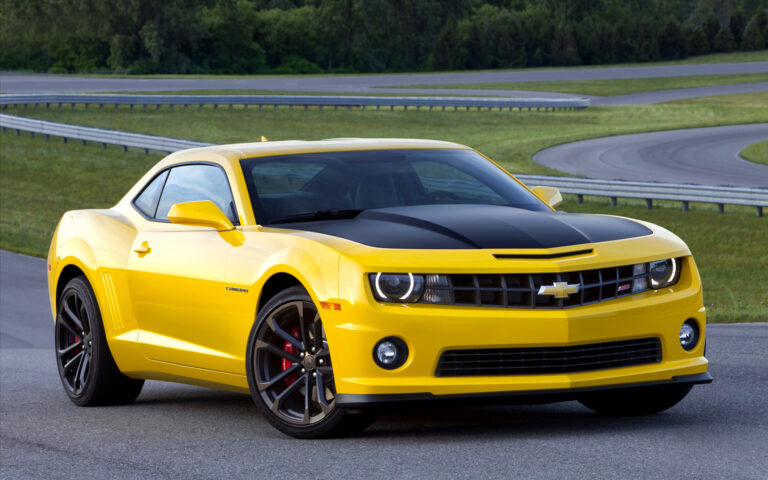Car Brands Starting With F: A Comprehensive Guide to Automotive Diversity
Car Brands Starting With F: A Comprehensive Guide to Automotive Diversity cars.truckstrend.com
The automotive landscape is a rich tapestry of innovation, heritage, and diverse engineering philosophies. Within this vast industry, certain letters of the alphabet stand out, signifying brands that have left indelible marks on history, pushed the boundaries of performance, or provided mobility to millions. Among these, the letter "F" holds a unique position, representing a fascinating spectrum of car manufacturers, from legendary titans of industry to niche luxury marques and ambitious newcomers.
This comprehensive guide delves into the world of car brands starting with "F," exploring their histories, their contributions to the automotive world, their defining characteristics, and what they offer to consumers today. Whether you’re a seasoned enthusiast, a prospective buyer, or simply curious about the names behind some of the world’s most iconic vehicles, understanding these "F" brands provides a deeper appreciation for the industry’s past, present, and future.
Car Brands Starting With F: A Comprehensive Guide to Automotive Diversity
The Titans of the F-Alphabet: Ford, Ferrari, and Fiat
When one thinks of car brands beginning with "F," three names immediately spring to mind, each a cornerstone of the global automotive industry, albeit in very different ways: Ford, Ferrari, and Fiat.
Ford: The Architect of Mass Mobility and American Icon
Founded by Henry Ford in 1903, the Ford Motor Company revolutionized the world with the introduction of the Model T and the pioneering of the assembly line. More than just a car company, Ford became a symbol of American industrial might and ingenuity, making automobile ownership accessible to the masses.
- Key Contributions: Ford’s impact is immeasurable. From the Model T, which put the world on wheels, to the legendary Mustang, which defined the pony car segment, and the ubiquitous F-Series pickup trucks, consistently America’s best-selling vehicles, Ford has shaped automotive culture.
- Global Presence: Ford operates globally, producing a wide range of vehicles, including cars, trucks, SUVs, and commercial vans. Their global reach has allowed them to adapt to diverse market needs, from compact cars in Europe to large trucks in North America.
- Innovation & Future: Today, Ford remains a powerhouse, heavily investing in electric vehicles (EVs) with models like the Mustang Mach-E and the F-150 Lightning, autonomous driving technology, and connectivity features, aiming to lead the transition to a sustainable and intelligent mobility future. Their commitment to diverse powertrain options and rugged utility vehicles continues to define their brand.

Ferrari: The Epitome of Speed, Luxury, and Racing Heritage
Ferrari, founded by Enzo Ferrari in 1939 (as Auto Avio Costruzioni), but officially building its first car under the Ferrari name in 1947, is synonymous with unparalleled performance, breathtaking design, and an unrivaled racing pedigree. More than just a car manufacturer, Ferrari is a lifestyle, an aspiration, and a symbol of automotive artistry.
- Unrivaled Performance: Ferrari vehicles are engineered for extreme speed and precision handling, featuring powerful V8 and V12 engines that deliver exhilarating driving experiences. Each model, from the classic 250 GTO to modern marvels like the LaFerrari and the SF90 Stradale, represents the pinnacle of automotive engineering.
- Exclusivity & Luxury: Ferrari maintains a strict policy of exclusivity, producing limited numbers of vehicles, which contributes to their high value and desirability. Owning a Ferrari is not just about transportation; it’s about being part of an elite club and experiencing automotive passion at its purest.
- Formula 1 Dominance: At the heart of Ferrari’s identity is its Scuderia Ferrari Formula 1 racing team, the most successful team in F1 history. This racing DNA flows directly into their road cars, ensuring that performance and cutting-edge technology are always paramount.
Fiat: Italian Flair, Compact Charm, and Global Reach
Fabbrica Italiana Automobili Torino, or Fiat, established in 1899, is Italy’s largest car manufacturer and has played a significant role in motorizing Europe. Known for its stylish, compact, and often quirky vehicles, Fiat has a distinct identity rooted in Italian design and practicality.
- Iconic Models: Fiat’s history is dotted with iconic models like the original Fiat 500, which mobilized post-war Italy, and the modern reincarnation that brought retro charm to global markets. Other notable models include the Panda and Punto, known for their urban agility and fuel efficiency.
- Abarth Performance: Fiat’s performance division, Abarth, adds a sporty edge to many of its compact models, transforming them into nimble, high-revving machines that punch above their weight.
- Global Expansion (FCA/Stellantis): Fiat’s strategic moves, particularly the acquisition of Chrysler, formed Fiat Chrysler Automobiles (FCA), which later merged with PSA Group to create Stellantis. This has given Fiat a broader global footprint and access to a wider range of platforms and technologies, making it a key player in a multinational automotive conglomerate.
Beyond the Titans: Other Notable F-Brands
While Ford, Ferrari, and Fiat dominate the "F" landscape, several other fascinating brands, both historical and contemporary, also begin with this letter, contributing to the industry’s diversity.
- Faraday Future: An American electric vehicle startup founded in 2014, Faraday Future aimed to revolutionize the EV market with cutting-edge technology and radical designs. Despite significant financial challenges and production delays, the company launched its luxury FF 91 EV, focusing on advanced connectivity and performance. Its journey highlights the immense capital and complexity involved in building a new automotive brand from scratch.
- Fisker: Another American electric vehicle company, Fisker Inc. (a rebirth of the earlier Fisker Automotive), founded by renowned automotive designer Henrik Fisker, focuses on sustainable luxury EVs. After a challenging first attempt with the Karma hybrid, Fisker Inc. is now producing the Ocean SUV, emphasizing recycled materials, solar roofs, and innovative design, aiming for a more environmentally conscious premium segment.
- Foton: A prominent Chinese manufacturer, Foton Motor Group (part of BAIC Group) specializes in commercial vehicles, including trucks, buses, and light-duty vehicles. While less known in Western passenger car markets, Foton is a major player in Asia and other emerging markets, providing robust and affordable transportation solutions across various industries.
- Force Motors: An Indian automotive company, Force Motors is known for its utility vehicles, commercial vehicles, and agricultural tractors. With a history dating back to 1958, Force Motors manufactures rugged and reliable vehicles designed for challenging terrains and heavy-duty applications, playing a vital role in India’s infrastructure and rural economy.
- FSO (Fabryka Samochodów Osobowych): A historical Polish automobile manufacturer, FSO was a significant producer of cars during the Communist era, notably licensed versions of Fiat and Polonez models. While its direct automotive production has largely ceased, FSO represents a bygone era of Eastern European automotive industry and its attempts to provide affordable mobility.
The Diverse Landscape of F-Branded Automakers
The "F" brands collectively represent an incredible spectrum of automotive offerings:
- Hyper-Performance & Ultra-Luxury: Ferrari stands alone at the apex, offering the ultimate in automotive exhilaration and exclusivity.
- Mass Market & Utility: Ford provides a vast range of vehicles for every segment, from fuel-efficient cars to heavy-duty trucks, catering to the needs of millions globally.
- Compact & Stylish Urban Mobility: Fiat, with its iconic 500, offers charming and practical solutions for city dwellers and those seeking European flair.
- Emerging EV Luxury: Fisker and Faraday Future represent the cutting edge of electric vehicle design and technology, challenging established players with innovative approaches.
- Commercial & Utility Workhorses: Foton and Force Motors are foundational brands in their respective regions, powering businesses and agricultural sectors with robust vehicles.
- Historical Significance: FSO serves as a reminder of the global reach and diverse political economies that shaped the automotive industry over the past century.
This diversity highlights that a brand starting with "F" can mean anything from a million-dollar supercar to a work truck, reflecting different engineering priorities, market focuses, and historical contexts.
Choosing an F-Brand Vehicle: Practical Considerations for Buyers
For consumers considering a vehicle from one of these "F" brands, practical advice is essential. The choice will heavily depend on individual needs, budget, and desired driving experience.
- Define Your Purpose: Are you looking for a daily commuter (Fiat 500, Ford Focus/Escape)? A rugged work vehicle (Ford F-Series, Foton truck)? A performance machine (Ferrari, Ford Mustang)? Or a cutting-edge EV (Fisker Ocean, Ford Mach-E)?
- Budget & Value: Prices vary astronomically. A new Ferrari can cost upwards of $300,000 to over a million, while a new Ford F-150 might start around $35,000, and a Fiat 500e could be in the low $30,000s. Consider not just the purchase price but also insurance, maintenance, and fuel/charging costs.
- Reliability & Maintenance: Ford generally has a strong reputation for reliability and readily available parts and service globally. Ferrari maintenance is specialized and very expensive. Fiat has had mixed reliability perceptions, though modern models have improved. For newer EV startups like Fisker or Faraday Future, long-term reliability data is still emerging, and service networks might be less extensive initially.
- Technology & Features: Modern F-brands offer a plethora of technologies, from advanced infotainment systems and driver-assistance features to sophisticated EV powertrains and autonomous driving capabilities. Research what features are important to you.
- Resale Value: Established brands like Ford often hold their value well, especially popular models like the F-Series. Ferrari vehicles often appreciate, becoming collector’s items. The resale value of newer EV startups can be more volatile.
- Environmental Impact: If sustainability is a priority, Ford’s expanding EV lineup, Fisker’s focus on sustainable materials, and Fiat’s electric 500e offer compelling choices.
Challenges and Opportunities for F-Brands
Like the entire automotive industry, "F" brands face significant challenges and exciting opportunities in the coming decades.
- Electrification Transition: All major "F" brands are heavily invested in transitioning to electric vehicles. This requires massive R&D, retooling factories, and building charging infrastructure, posing a huge financial and logistical challenge. However, it also presents an opportunity to capture new markets and redefine their brand identity for a sustainable future.
- Autonomous Driving: The race for autonomous technology is intense. Ford is a key player, investing in self-driving software and partnerships. The success of this technology will redefine how we interact with vehicles.
- Global Supply Chain Issues: Ongoing semiconductor shortages and other supply chain disruptions continue to impact production across all manufacturers, including F-brands, leading to delays and higher costs.
- Intense Competition: The automotive market is more competitive than ever, with new EV startups, established players, and tech giants all vying for market share.
- Maintaining Brand Identity: For heritage brands like Ford, Ferrari, and Fiat, the challenge is to evolve with new technologies (like EVs) while retaining the core DNA and appeal that has defined them for decades.
Concluding Summary
The world of car brands starting with "F" is a testament to the incredible diversity, innovation, and historical richness of the automotive industry. From the mass-market accessibility and rugged utility of Ford to the exquisite performance and exclusive luxury of Ferrari, and the charming Italian design of Fiat, these brands have shaped our roads, our culture, and our understanding of mobility. Add to this the pioneering spirit of EV startups like Fisker and Faraday Future, and the commercial might of Foton and Force Motors, and you have a truly comprehensive cross-section of the global automotive landscape. As the industry continues its rapid evolution towards electrification and autonomous driving, these "F" brands will undoubtedly continue to play pivotal roles, adapting, innovating, and inspiring for generations to come.
Illustrative Price Table for Car Brands Starting With F
Please note: Prices are highly variable based on model year, trim level, optional features, new vs. used condition, region, and market demand. These are estimated starting prices for new vehicles in USD and are subject to change. This table is for illustrative purposes only and does not represent an exhaustive list of all models.
| Brand | Representative Model | Vehicle Type | Estimated Price Range (USD) | Key Characteristic(s) |
|---|---|---|---|---|
| Ford | F-150 | Full-size Pickup | $36,000 – $85,000+ | America’s best-selling vehicle, versatile, rugged. |
| Mustang Mach-E | Electric SUV | $43,000 – $70,000+ | Sporty electric crossover, iconic nameplate. | |
| Bronco | Off-road SUV | $35,000 – $70,000+ | Iconic off-roader, retro styling. | |
| Ferrari | Roma | Grand Tourer | $240,000 – $280,000+ | Elegant, high-performance GT. |
| 296 GTB | Mid-engine Hybrid | $330,000 – $380,000+ | V6 plug-in hybrid supercar, cutting-edge tech. | |
| SF90 Stradale | Flagship Hybrid | $550,000 – $650,000+ | Ferrari’s first series-production PHEV, ultimate performance. | |
| Fiat | 500e | Electric City Car | $32,000 – $38,000+ | Stylish electric urban commuter (availability varies). |
| 500X | Compact SUV | $29,000 – $35,000+ | Small crossover with Italian flair. | |
| Fisker | Ocean | Electric SUV | $39,000 – $70,000+ | Sustainable luxury EV, innovative design. |
| Foton | Tunland (Pickup Truck) | Mid-size Pickup | $15,000 – $30,000+ (Est.) | Robust commercial/utility vehicle (markets outside US). |
| Aumark (Light Truck) | Light Commercial | $12,000 – $25,000+ (Est.) | Versatile light-duty truck for various industries. | |
| Faraday Future | FF 91 | Luxury Electric SUV | $300,000+ (Est.) | Ultra-luxury, high-tech EV with focus on connectivity. |
Frequently Asked Questions (FAQ) about Car Brands Starting With F
Q1: Which "F" brand is the oldest car manufacturer?
A1: Ford Motor Company, founded in 1903 by Henry Ford, is generally considered the oldest continuously operating major car manufacturer among the "F" brands. Fiat was founded slightly earlier in 1899, but its early focus was broader (engines, railways, etc.) before fully specializing in automobiles.
Q2: Which "F" brand is known for luxury sports cars and racing?
A2: Ferrari is unequivocally known for its ultra-luxury, high-performance sports cars and its legendary success in Formula 1 racing. Its entire brand identity is built around speed, exclusivity, and racing heritage.
Q3: Are there any affordable electric cars from "F" brands?
A3: Yes. The Fiat 500e is designed as an affordable and stylish electric city car (though its availability varies by region). Ford also offers electric vehicles like the Mustang Mach-E and the F-150 Lightning, which, while not "budget" cars, offer more accessible price points than ultra-luxury EVs and cater to different market segments.
Q4: What’s the main difference between Fisker and Faraday Future?
A4: Both are American electric vehicle startups, but they have different approaches and histories. Fisker Inc., led by designer Henrik Fisker, emphasizes sustainable luxury, design, and a more accessible premium EV market (e.g., Fisker Ocean SUV). Faraday Future aimed for a more extreme, ultra-luxury, and technologically advanced EV with a focus on smart mobility and connectivity (e.g., FF 91), facing more significant financial and production hurdles.
Q5: Do any "F" brands produce commercial vehicles or trucks?
A5: Yes, absolutely. Ford is a global leader in commercial vehicles, especially with its F-Series pickup trucks and Transit vans. Foton Motor Group (China) and Force Motors (India) are primarily focused on commercial vehicles, including trucks, buses, and utility vehicles, serving industrial and agricultural sectors in their respective regions and beyond.





